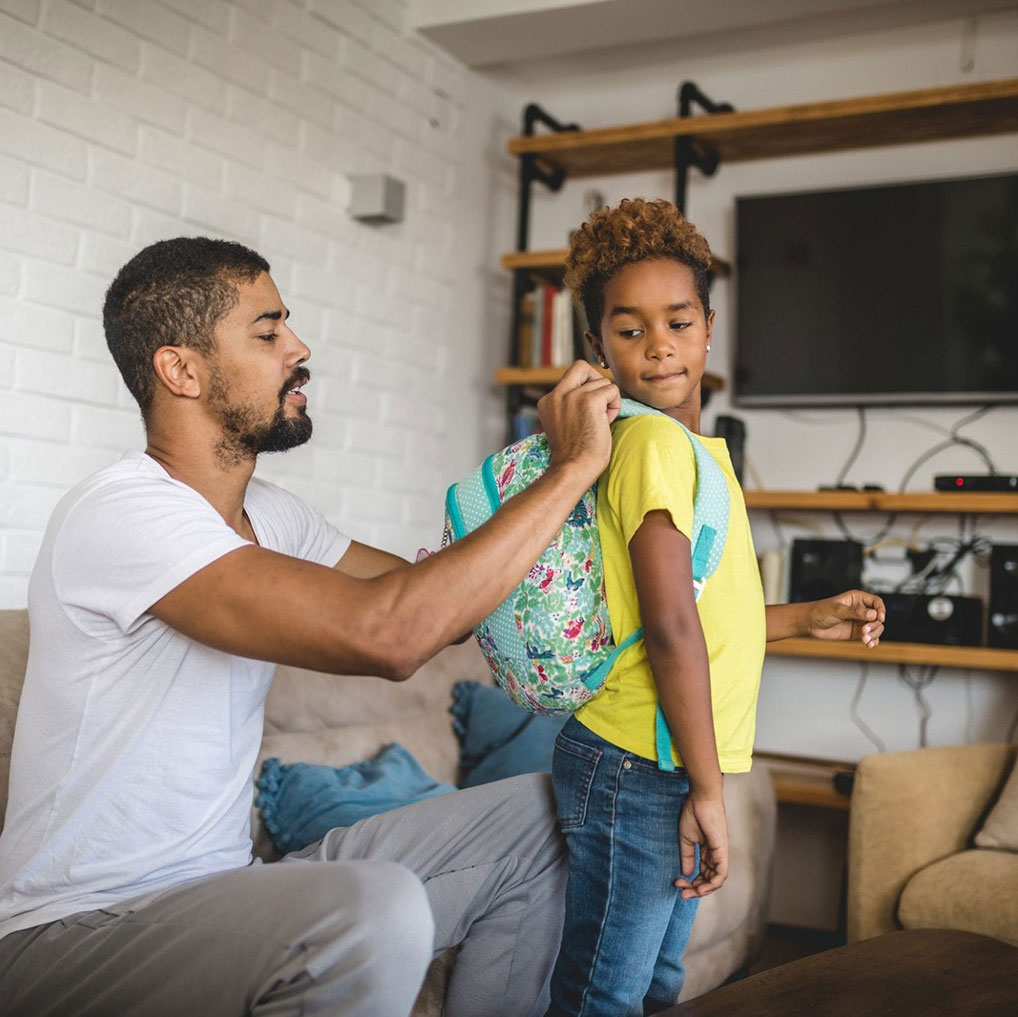What Can You Do After You’re Fully Vaccinated Against COVID?

March 10, 2021
There are advantages to getting fully vaccinated against COVID-19: Not only can you protect your health as well as those around you, you can begin doing certain activities that you may have enjoyed before the pandemic, including traveling and socializing with friends.
As the COVID-19 vaccination rollout continues around the country, the Centers for Disease and Control Prevention (CDC) released an updated list of recommendations for fully vaccinated people on May 13, 2021, which includes changes to mask-wearing guidelines, allowing those who are eligible to go maskless in many settings. The CDC has periodically released updated recommendations for fully vaccinated people since March, as experts learn more about the effectiveness of the vaccine.
Jerry Zuckerman, M.D., vice president of infection prevention and control at Hackensack Meridian Health, helps explain these new guidelines, adding, “We all look forward to resuming our everyday activities and connecting with family and friends, and these recommendations are helping reflect the benefits of the vaccine.”
Here’s what you should know about the CDC’s new recommendations for fully vaccinated people.
Who’s Considered Fully Vaccinated
The CDC defines “fully vaccinated” as people who:
- Are two weeks past their second dose of either the Moderna or Pfizer vaccine OR
- Are two weeks past a single dose of the Johnson & Johnson Janssen vaccine
What Fully Vaccinated People Can Do
- Resume the activities that you did prior to the pandemic.
- Resume activities without wearing a mask or practicing social distancing, except where it’s required by laws, regulations, business practices and workplace guidance.
- Take part in social and recreational outdoor activities without wearing masks.
- Refrain from quarantine and testing after a known exposure if you are asymptomatic unless you work at a high risk location like a long-term care facility.
What Fully Vaccinated People Can Do When Traveling
According to the CDC, people who are fully vaccinated can travel safely within the country. They’ve issued advice for international travel, as well. This green light means that fully vaccinated people can:
- Travel to and from destinations within the U.S. without getting tested beforehand or afterward (unless required by the location)
- Travel to certain international destinations without getting tested beforehand (depending on the destination)
- Travel to and from domestic locations without self-quarantining upon arrival
- Travel home from international locations without self-quarantining upon arrival (however, before flying home, you’ll need a negative COVID-19 test result within 3 days of your flight, and you should follow the CDC’s recommendations to get tested again 3-5 days after travel)
It’s important to remember that you Need to wear a mask when traveling on planes, buses, trains, ferries or other modes of public transport.
What Fully Vaccinated People Should Continue to Do
According to the CDC, fully vaccinated people should continue to:
- Wear a mask and practice social distancing when in a asked by your workplace or local business
- Wear a mask and social distance when visiting unvaccinated people who are at increased risk for severe COVID-19 disease
- Continue to monitor for symptoms of COVID-19, especially if you’ve been around someone who has been sick. If you have symptoms of COVID-19, you should get tested.
If you’re at increased risk for developing severe complications from COVID-19, talk to your doctor about what activities are safe for you to resume.
Who’s Considered at Increased Risk
Some people are more likely than others to become severely ill from COVID-19:
- Older adults
- Pregnant women
- People with medical conditions, such as cancer, heart conditions, obesity, COPD and Type 2 diabetes
It’s important to note that these guidelines were developed for non health care settings. If you’re working or visiting someone in a hospital or other health care setting, such as a long term care facility or doctor’s office, masking and social distancing requirements remain, regardless of your vaccination status.
Guidance will continue to evolve as we learn more about the effectiveness of the vaccines, their impact on transmission and duration of protection. It may also change as larger percentages of the population get vaccinated.
“As more and more people become fully vaccinated, we are no doubt headed in the right direction,” Dr. Zuckerman says. “But remember, we’re not out of this yet. Those who have not been vaccinated should closely follow the CDC recommendations to continue helping stop the spread of the virus. And if you have not gotten vaccinated yet, you should get one – it’s never been easier.”
The material provided through HealthU is intended to be used as general information only and should not replace the advice of your physician. Always consult your physician for individual care.
Find a doctor near me
Relieving Pain From Heavy Backpacks

A backpack that is too heavy for your child can cause back pain. Our pediatric orthopedic experts share how to prevent this issue and alleviate pain.
Reduce Your Fear of Needles

A fear of needles can seem debilitating. Here are some tips to help overcome the phobia.
Find a doctor near me

Answered: 5 Questions about Face Masks
Learn about face masks from a medical expert. Get answers to key questions regarding mask types and proper usage for better protection.

5 Mask Mistakes People Make
Avoid 5 common mask mistakes. Learn proper mask use to protect yourself and others. Call 800-822-8905 for an appointment.

Dealing with Child Boredom without Relying on Screen Time
For parents concerned about leaning on TV and tablets too much while kids are at home, here are some healthy alternatives to help keep the little ones entertained.

Safe and Warm Ways to Gather Outside While Social Distancing
There’s no substitute for spending quality, in-person time with friends. But when you aren’t part of the same COVID bubble and the safest way to socialize is outdoors, you may assume that get-togethers are off-limits during the chilly winter months.
